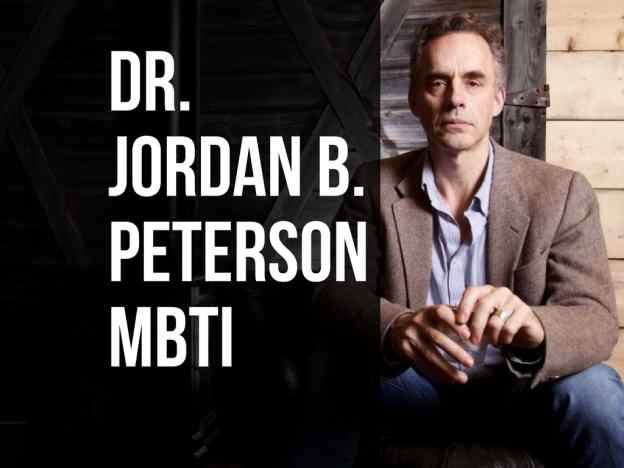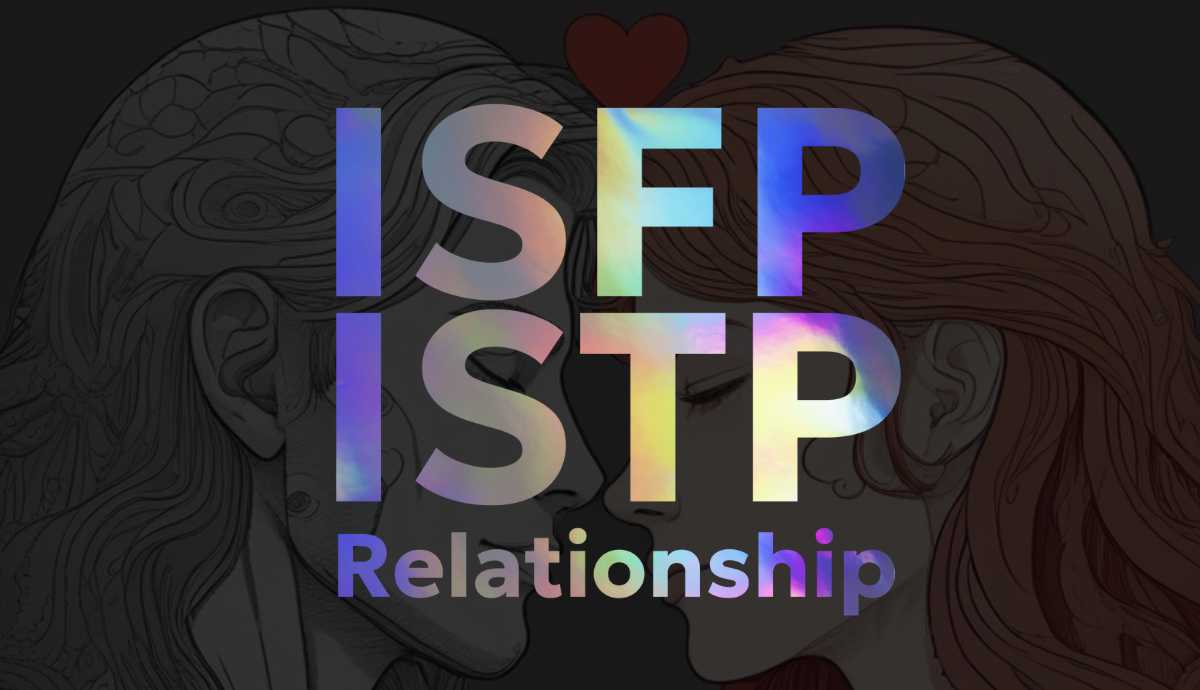In 2012, Jordan Peterson tweeted a Washington Post article and wrote “Why the Myers Briggs is a cult: Washington Post gets it right”. Peterson is apparently not a proponent of the Myers-Briggs type indicator. He deems it to be unreliable and has stated in one of his many lecture clips posted on youtube that “The Myers-Briggs has zero predictive utility with regards to performance prediction [in the workplace]”. Instead of the MBTI, he often refers to the Big 5 when discussing psychometric personality traits.
There is believed to be some correlation between the MBTI and the Big 5 traits and based on Peterson’s self-reported Big 5 trait profile, he may likely be an ENFJ. An analysis of his lectures, debates and interviews however, suggest he may also be an INFJ, INTP, INTJ or ENTJ. Here is an assessment of Jordan B. Peterson’s MBTI type based on the cognitive functions he seems to display most.
But First A Little Background
Jordan B. Peterson is a clinical psychologist and professor of psychology at the University of Toronto. He was born June 12, 1962 in Edmonton, Canada. His new book 12 Rules for Life: An Antidote to Chaos is a strategy guide for navigating the game of life. His first book Maps of Meaning: The Architecture of Belief was published in 1999 and explores the motifs, symbols and myths created by various cultures and what they reveal about the human psyche.
Rise in popularity
Around October 2016, Dr. Peterson’s popularity skyrocketed after becoming embroiled in drama surrounding a Canadian piece of legislature called bill C-16. Peterson decried the bill, which if enforced, would require individuals by law to use preferred gender pronouns or potentially face prosecution for hate crime. Peterson opposed the bill as a violation of free speech and released a 3-part lecture video series outlining his stance of the issue for which he drew criticism from transgender activists and colleagues.
Jordan has argued that this bill and the so called trans-activists promoting it, do not actually serve the interests of the transgender community and he cites having received numerous letters of support from real trans people who attest to that. Peterson believes that the bill is an effort by radical neo-marxist authoritarians to push an ideological agenda under the guise of helping trans people.
Dr. Jordan Peterson’s youtube Channel has garnered over 36 million views since its inception in March 2013. He has posted many of his psychology classes online with lectures at the University of Toronto and other venues. What he teaches draws on the collective wisdom of various sources including the bible, Nietzche, Jung and others to shed light on the subconscious ancestral maps of meaning encoded in human psychology and the proverbial myths and stories created by it. He has spoken at TEDx, appeared on various shows including the Joe Rogan Podcast, The Rubin Report, The Waking Up Podcast with Sam Harris, Freedomain Radio, Louder with Crowder, and the BBC Channel 4 with Cathy Newman.
What Jordan Peterson talks about
“I don’t think that you have any insight whatsoever into your capacity for good until you have some well-developed insight into your capacity for evil.”
― Jordan B. Peterson
Because of his profession and the psychology courses he teaches, Jordan discusses a great deal about the underlying mechanisms that drive and characterize human behavior. He discusses the Jungian shadow and the capacity for evil and malevolence that exists in us all (whether we want to believe it or not).
Peterson is a champion of epistemological truth and has been the most visible combatant in the war against political correctness and post-modern moral relativism. Much of his work seems to be a bid to reconnect modern society with an understanding of the ancestral wisdom of archetypes and the utility they have even today.
Extravert or introvert?
By his own admission, Jordan rates highly on scales of extraversion, openness, conscientiousness and above average in agreeableness. In the MBTI, certain introverted types such as INFJ can appear more extroverted than they really are due to their capacity for being sociable. Jordan could be an introvert who is well adjusted and well-socialized.
His temperament is rather reserved and stalwart in interviews and he has pointed out himself that his extroversion is mostly ‘assertiveness’. In the MBTI, extroverts are described as being more impulsive and enthusiastic. Peterson often exhibits a more reserved and pensive demeanor and in intellectual discussions sometimes takes pregnant pauses to gather his thoughts before answering a question.
Sensor or Intuitive?
“Don’t underestimate the power of vision and direction. These are irresistible forces, able to transform what might appear to be unconquerable obstacles into traversable pathways and expanding opportunities. Strengthen the individual. Start with yourself. Take care with yourself. Define who you are. Refine your personality. Choose your destination and articulate your Being. As the great nineteenth-century German philosopher Friedrich Nietzsche so brilliantly noted, “He whose life has a why can bear almost any how.”
― Jordan B. Peterson, 12 Rules for Life: An Antidote to Chaos
Because Dr. Peterson’s work focuses so heavily on an interest in symbolism and meaning it’s apparent that he has an intuitive preference- specifically that of introverted intuition. Introverted intuition strives to understand the significance and purpose behind phenomena. It goes beyond the literal and the present to interpret and predict future outcomes. Part of Jordan Peterson’s opposition to Bill C-16 was out of concern for the precedent it would set and the consequences it would have on free speech in the future.
The MBTI trait of ‘Intuition’ correlates strongly with the BIg 5 trait ‘openness’ and Peterson states that he rates highest in openness. Extraverted sensing could also be linked to openness but probably more so with extraversion. His high openness score suggests that his dominant function may be either extroverted or introverted intuition. ‘Openness’ and ‘intuition’ are both associated with creativity and intellect and Peterson seems very much interested in abstract ideas, representations and meanings than concrete details and sensory thrill seeking.
Feeler or Thinker?
“… It’s very helpful to help your children behave in ways that make other people welcome them, because then everywhere they go they’re welcome and there’s nothing better you can do for a child than that.”
– Jordan B. Peterson
Jordan has said that he rates above average in agreeableness relative to other men. This along with his work as a psychologist could hint at introverted or extraverted feeling as a possible tertiary function. Introverted feeling seems more likely given his focus on morality and good versus evil archetypes. Much of his work is an examination of value systems and why individuals and groups value the things they do. Even the concept of “truth” itself as he has argued, is entrenched in subjective value systems governing how we qualify it.
Peterson has talked about the distinction between objective truths vs. pragmatic ones and that a ‘fact’ in his opinion is not necessarily a “truth”. From this you could infer that Peterson is a very metaphysical thinker and probably an ‘NT’ type. In debates and lectures he cites many statistics and studies to substantiate and correlate the ideas and theories he discusses. He argues for things on the basis of evidence and logic and is not swayed by emotional rhetoric. This suggests a strong ‘extraverted thinking’ bias.
Judger or Perceiver?
“I get up in the morning, I have… like, everything scheduled. I know exactly what I’m supposed to do. There’s a hierarchy of priority. And I’m really operating on a day to day level right now because there’s so many things to do, I can’t look more than about a day or two ahead although it’s basically scheduled.”
– Dr. Jordan Peterson on H3H3 podcast
Jordan Peterson has stated that he rates high on conscientiousness (more so on industriousness, less so on orderliness). In his lectures, he has often stressed the importance of scheduling and the cultivation of effective time management skills towards the fulfillment of goals. Dr. Peterson’s patriarchal enjoinder for people to clean their rooms was a funny piece of advice coming from a professor. Jordan has mentioned that in his youth, he indulged in alcohol use, and battled depression and it wasn’t until later that he began to regiment his life better. The drinking and the depression is consistent with INTJ or INFJ behavior when in the “grip” of their inferior function.
In conclusion, I believe Dr. Jordan Peterson to be an INFJ. Due to his focus on morality and wisdom and the fact that his life’s work is predominantly concerned with the amelioration of people’s lives and society at large through teaching and consultation he is probably more ‘NF’ than ‘NT’.
Want to know your astrology placements? You can generate your astrology chart here with our free birth chart generator tool.
[ads_color_box color_background=”#020003″ color_text=”#ffe3f9″]Please share this post and subscribe for future updates :)[/ads_color_box]
- related posts:
- The Defense Mechanism Each MBTI Personality Is Likely to Use
- Research Statistics About Each MBTI Personality
- Which MBTI Type Is Most Likely To Cheat?
- MBTI Stress | The 16 Types When Overwhelmed With Stress
- The Logical Fallacy You Likely Use Based On Your Myers-Briggs Type
- What Each Myers-Briggs Type Is Like During Childhood
- 10 High Paying Careers For Introverts
- Fight Club: Jordan Peterson vs Cathy Newman
- Jordan Peterson and Powerful Men
- Jordan Peterson Still Getting His Analysis Wrong
- The 8 Cognitive Functions Explained - May 17, 2025
- American Presidents Ranked By Zodiac Sign - January 20, 2025
- ESTP and ESFP in love: 6 Dynamics of Their Relationship - September 4, 2024









Side note: Any type can get depression and since that’s not a repetitive pattern, should be disregarded. The type I’m going to focus on is also notorious for going through depression or existential dread, and we should be mindful to be careful when mixing mental disorders with cognitive functions. Therefore, I won’t be making a case off of that, because again, it is not as reliable as the tendencies we can measure on a routine basis. His dedication to finding inherent truths, while remaining aware of their relativity is characteristically very INTP. It is not uncommon for an INTP type to be drawn towards topics of morality, virtue or ethics with a desire to systematically lay out what makes them such, in an attempt to understand every part and its role to the system. Next, his vigilance to be as clear as possible with the terms he chooses to use, in order to filter out any possible bias, is a behavioral quality that has historically been attributed to the INTP type, also known as “the Logician”. It’s evident in his videos when he gets more assertive (and often louder) as biases are introduced by others, how quick he is to separate emotion from logic in order to make that specific distinction is again INTP characteristic. That makes sense, since INTPs hate bias, which only prove to ruin the entire system (that has been rigorously challenged and filtered) rendering it from producing anything clear, predictable or useful. That’s a huge blow to someone who is dedicated, above all else, to the truth, and who has sacrificed much of himself to honor that. His dedication to finding statistics and research to fit into his framework for understanding and explaining a topic is further evidence. Lastly, if you watch his available lectures, you’ll notice the way he speaks, although very eloquent, is heavily reflective of the INTP type. Many INTP types stereotypically come off a little adhd because of this linguistic pattern to stop mid sentence in order to clarify the term or concept they just mentioned, to ensure a precise context, which is necessary when accurately following a line of logic, before they go on. He does the exact same thing, in his lectures and it’s marvelous. Perhaps, he does it in a manner that is a little faster than some will notice, from his years of public speaking, but he is dedicated to making those distinctions, rather than allowing context to fill in the gaps. An absolute vital step if we ever hope to produce anything accurate. Further, INTPs stereotypically can be quite puzzled by emotion, or rather the various ways one can express emotion and what prompts someone to do so, but they are often inherently principled, and because of that combination, along with their curiosity, many of them wish to learn psychology, in order to have a manual for navigating said blind spot, as well as to challenge the public, by logically explaining emotion; making it calculable, predictive, and perhaps more liable, so that it can’t be used in equal weight with logic when illogical. For example, an emotional response that prompts the success and longevity of an individual may be a logical response in a given circumstance, however, an emotional response that gaslights logic and is used to manipulate a system, is very dangerous and common practice. With a clear and proper way to call out those emotions to be examined logically, such as where they stem from and where they might go, it becomes increasingly more possible to attribute a definable value to said emotion(s).This holds people who use emotional justifications increasingly more liable to give a sufficient defense, which allows for a more accurate scrutiny and a clearer judgement. Granted the Myers Briggs test is limited, and any label given to him, is a little disrespectful in the dismissiveness of his and others greater collective works. No one group exclusively holds one behavioral tendency. That being said, if we are to only look at the Myers Briggs personality types, and we are asking ourselves which group will best likely predict his behavior, disregarding the potential value “best” may hold, or lack thereof, his systematic thinking, dedication to to truth without bias, plethora of data, linguistic precision and his passion for feeding the mind, most reflect the INTP type. Although perhaps also, INTJ as I didn’t make a case between the perceiving and judging, but it sounds like he cultivated the skill to schedule routine out of necessity, meaning he didn’t inherently find that ability to be natural and governing, and is still limited to the extent he willingly participates in its engagement, rather than willfully going against a nature that seeks refuge in his schedule. However, I don’t have a routine behavioral pattern to make a case for either. That leaves added ambiguity, in a process that already cannot produce any definite answer. Still, someone can be “most like the conditions of group” without being exactly all of those “conditions”, nor bound only, to those conditions’ limitations of measurement. Depending on how you define what it means to be any of these characteristics, can also determine the answer you get. From my point of view, I attempted to look at his behavior for indicative patterns of traits, but again, it seems too relative, to be dependable enough, for anyone to say he is definitively anything.